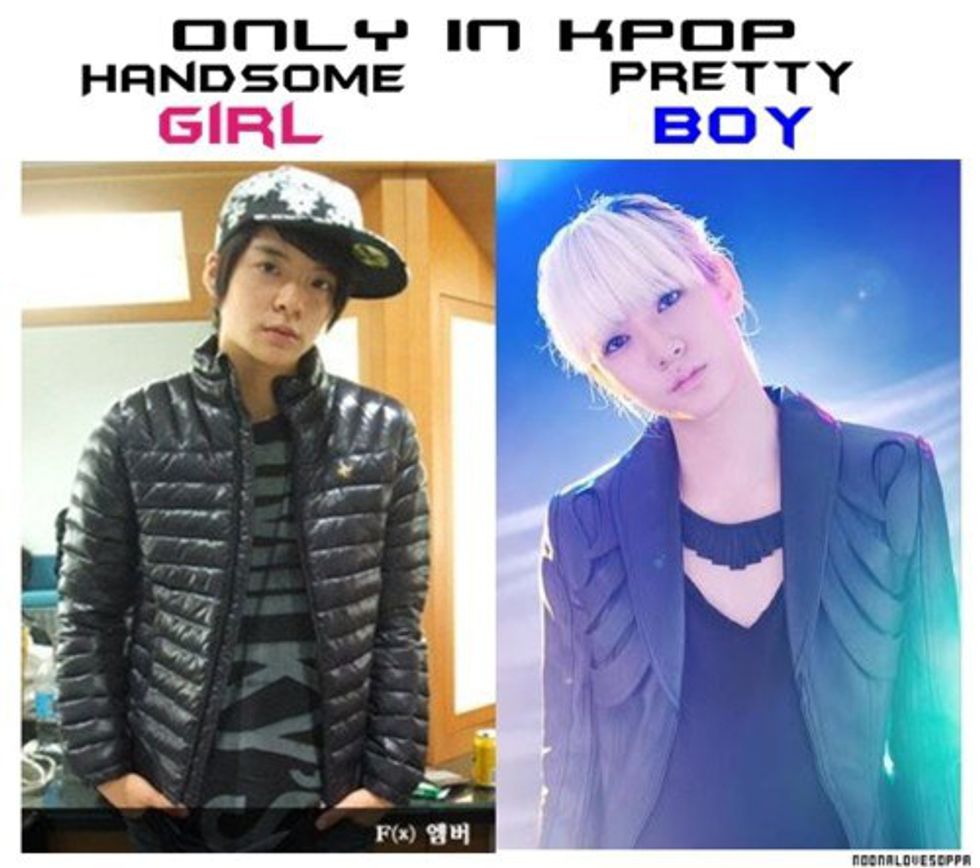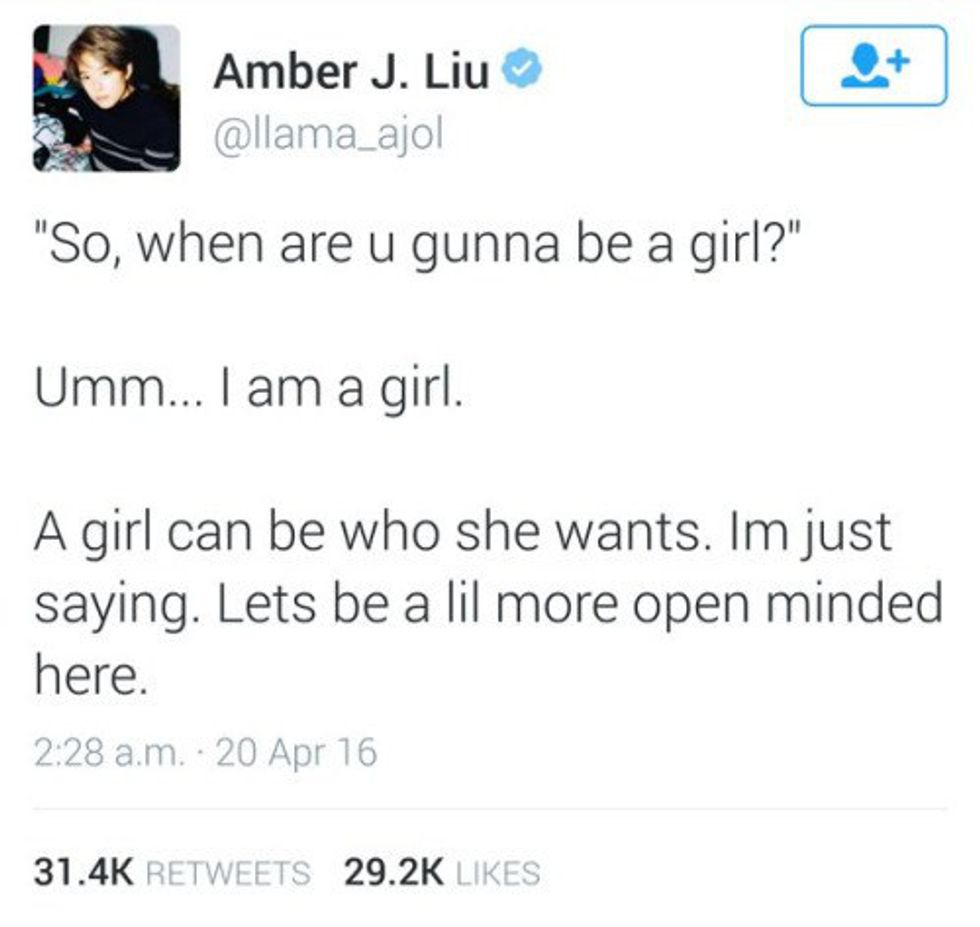We're all guilty of playing "the game." The game of guessing if a person is a boy or girl. Not to generalize a whole population of cis-gendered people like myself, but you have to admit: based on their clothes, behavior and how they talk to people, we create an assumption of what we think a female or male look like.
We think a person with long hair is a girl. We think a person who looks tough and looks masculine is a boy. If we see a person who wears make-up with long hair but looks masculine, it confuses us. We pop--up the most common question in our heads: boy or girl?
We don't think about people who identify as trans, genderqueer or non-binary (a person who doesn't identify as either gender) because we were not exposed to those terms before, nor did we have experience of being trans/genderqueer/non-binary. Some marginalized groups also identify as androgynous, a person with both masculine and feminine appearance. Instead of acknowledging there is more than one gender, straight, cis-people easily conclude the gender of a person they encounter including celebrities and musical artists.
A genre like K-Pop is no exception. In K-Pop, artists, especially male singers, have an androgynous appearance and wear make-up on stage and music videos. In a conservative country like Korea, Korean singers with a "Flower Boy" image, a person, mostly male, with feminine appearance are considered to be highly attractive even though it doesn't necessarily understand the queer aesthetic that goes along with it. Many people who seen a K-Pop music video by a boy group such as EXO, Big Bang and BTS for the first time will automatically think, "Why do they look like girls?"
Most international fans, thus, play a game that practices this question called K-Pop Gender Test or Gender Bender. The game is basically what the title is: a person looks a picture of various Korean stars and guess if they are a boy or a girl.
There are YouTube videos of YouTubers playing the game including Canadian couple Simon and Martina of Eat Your Kimchi/Eat Your Sushi.
Youtuber KpopSteve has also done the K-Pop Gender Test on his channel.
While the game is harmless, it does hold a problematic practice of assuming one's gender. For example, Amber from the girl group f(x) is known to have a tomboy characteristic and rarely wears dresses, skirts, or anything that can be labeled "for women." K-Pop fans, especially international, have teased Amber for being mistaken as a boy, same goes to male K-Pop artists as women. One of the most notable androgynous K-Pop artists is Ren from boy group NU'EST. When he debuted with his group back in 2012, many fans have pointed how "pretty" he is and when he cross-dressed as other K-Pop female artists they teased him as well for presenting himself as more feminine.

During her interview with Buzzfeed, Amber briefly talks about having a phobia of going to public bathrooms, (starts at 3:13 and ends at 4:20) because people have stopped her and questioned her gender identity.
Both Amber and Ren have called out discrimination based on gender stereotypes. Months before her interview, Amber shared her experience on both her Twitter and Instagram account, educating her fans that "a girl can be who she wants to be" and should more "open-minded" on situations such as questioning gender.
Last May, Ren updated his fans on both Twitter and Instagram when he modeled for VIP Shop Ad, a China--based online mall. He wrote with a laughing emoji, "Am I a boy or a girl? I am a man. Fashion makes a person and its impression."
While Amber and Ren are cis-gendered stars, the context of gender remains visible. The problem with identifying one's gender is the idea of knowing what is a man or a woman or any gender. This can apply to queer community especially those who don't label themselves with one gender. If you identify as trans, non-binary or genderqueer. It is different to let people know who you are. However, pronouns has been a huge help for trans/non-binary community. Not only does it help establish your "gender" but also lets people know how they will address you.
While pronouns have helped cis--gendered people to know what they identify, there is still more to do to not only understand the rhetoric of gender or how to make a safe space for trans and non--binary folks without cornering them at public bathrooms and question their physical appearance. In fact, the question should be asked is what is gender?
Now should you stop and scream at anyone who plays K-Pop Gender Test? I wouldn't necessarily encourage screaming, but think of the "test" as Cards Against Humanity. While it is fun to drop your humanity over a card game for a night, you have to understand its problematic context and acknowledge that it shouldn't be applied to real life.
So if you do find yourself giggling and struggling to know if Ren is a boy or girl, just remember: a person can be what they want to be because Fashion makes a person and its impression. Let's be little more open--minded, my friends.






















